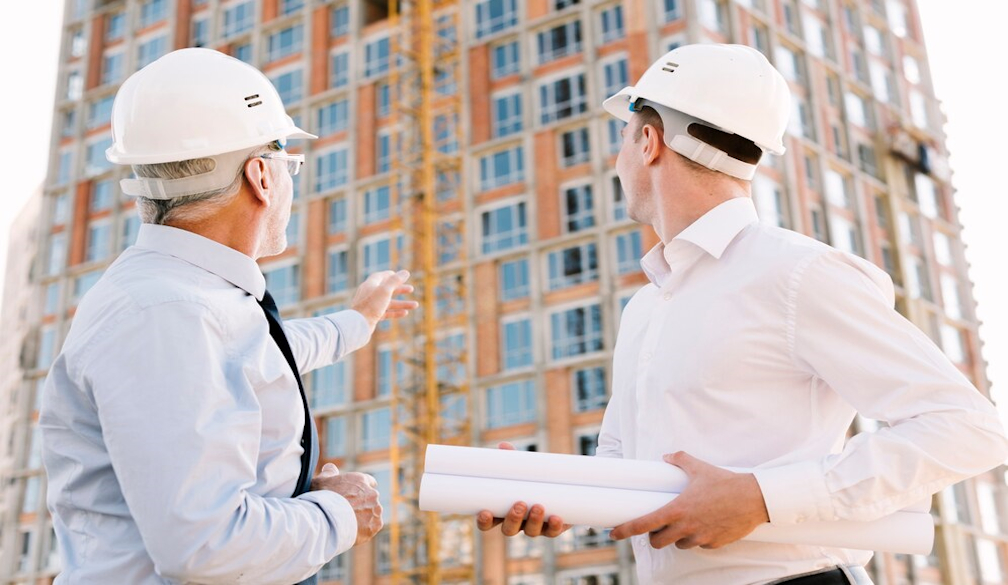The Top Reasons Why Regular Commercial Building Inspections are Essential

Understanding the significance of regular commercial structural building inspections is essential for building owners and property managers. This process not only underscores safety but also ensures that all parts of your commercial property are up to the mark, adhering to local codes and potentially saving substantial amounts of money in the long run. This article explores the top reasons why such inspections are crucial for maintaining the structural integrity, value, and functionality of commercial buildings.
Enhancing Safety
Safety is the paramount concern in any commercial building. Regular inspections help in identifying potential safety hazards like structural weaknesses, damaged electrical systems, or compromised fire safety measures. These inspections are not just about ticking boxes but ensuring that every occupant within the building is safe and secure. By detecting these issues early, property managers can initiate corrective measures swiftly, thereby preventing accidents and ensuring a safer environment for everyone. This proactive approach not only safeguards lives but also helps in fostering a sense of security among tenants and employees.
Ensuring Compliance with Local Codes and Regulations
Commercial buildings are subject to various local, state, and federal regulations that ensure safety, accessibility, and sustainability standards are met. Regular commercial structural building inspections are essential to verify that these buildings meet the necessary legal standards. Non-compliance can lead to hefty fines, legal issues, and in severe cases, closure of the facility. Through routine inspections, businesses can remain compliant with all relevant codes, which not only enhances the building's safety profile but also fortifies its reputation and operational continuity.
Extending Life Span of the Building
The longevity of any commercial building significantly depends on how well it is maintained. Regular inspections help in identifying and addressing minor issues before they escalate into major problems that could affect the building's structural integrity. Issues such as water leakage, roof damage, or foundation cracks can be remedied promptly if caught early during an inspection. This preventative approach not only helps in extending the lifespan of the building but also optimizes its functionality and aesthetic appeal over time.
Maintaining Property Value
From an investment perspective, the value of a commercial property is paramount. Regular inspections are a critical tool in maintaining and potentially increasing a property's market value. Identifying and fixing structural and other issues early means the property remains in prime condition, making it more attractive to tenants and investors alike. Furthermore, a well-maintained building often yields higher rental rates and retains tenants for longer periods, thereby ensuring steady revenue flow.
Improving Energy Efficiency
Energy efficiency is increasingly becoming a priority for commercial buildings, not just for cost savings but also as part of corporate responsibility initiatives. Regular building inspections often include checks for insulation issues, window seal integrity, and the efficiency of HVAC systems. Rectifying these aspects can substantially reduce energy consumption, leading to lower utility bills and a smaller carbon footprint. Additionally, energy-efficient buildings are more attractive to eco-conscious tenants and can qualify for energy certifications, adding to their market appeal.
Detecting Pest Infestations
Pest infestations can cause significant damage to a commercial building, affecting its structural integrity, hygiene standards, and overall workplace quality. Regular inspections can detect the early signs of pest infestation, which is crucial for managing and eradicating them before they become widespread. Timely intervention not only saves on costly repairs but also prevents diseases and allergies associated with pests, thus maintaining a healthy environment for occupants.
Saving Money in the Long Run
While regular inspections involve some upfront costs, the long-term savings can be substantial. Addressing issues early typically means simpler, more cost-effective solutions. Deferred maintenance can lead to complex repairs or replacements, leading to higher expenses. Regular upkeep, as facilitated by inspections, prolongs the lifespan of building components, optimizes performance, and reduces the frequency and severity of repairs needed. Furthermore, these inspections can be essential in avoiding disruptions to business operations, which can be costly and damaging to commercial entities.
Conclusion
Regular commercial building inspections are not just a regulatory requirement but a prudent practice that supports safety, efficiency, and financial sense. Ensuring that your commercial property is regularly inspected by professionals can spare you from unnecessary headaches and financial losses. It enhances the safety, functionality, and value of the building, making it a favorable environment for business and investment. Regular upkeep is the key to safeguarding your property's integrity and ensuring it remains a valuable asset in your commercial portfolio.









